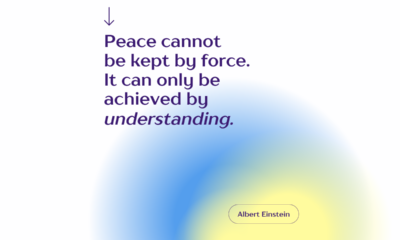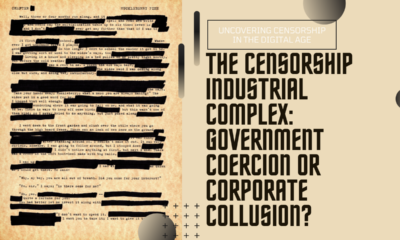Executive
Arizona election litigation breaks wide-open
An Arizona judge has just let a case proceed that strikes directly at the weakness in signature verification of mail-in ballots.
The Midterm election of Katie Hobbs as Governor of Arizona fooled no one. Everyone knows the Democrats stole that election, with procedures that would mortify any conscientious Officer of Election. Now a judge in another Arizona county has just ruled that signature verification – the most common weakness in mail-in and other absentee balloting – is a joke. In denying a motion-to-dismiss in that county, the judge has almost enjoined part of the State’s Election Procedures Manual. This has implications not only for Kari Lake’s complaint about her race, but for mail-in balloting everywhere.
The latest Arizona litigation
Two plaintiffs – Arizona Free Enterprise Club and Virginia’s Restoring Integrity and Trust in Elections – sued Arizona’s Secretary of State. AFEC and RITE v. Fontes, case S1300CV202300202, Yavapai County, Arizona. The plaintiffs allege that the signature verification and matching procedures the State Division of Elections uses, break Arizona law. This law requires matching a voter’s signature on a ballot with the signature on a registration application. Instead, election officials have been matching signatures on present ballots with signatures on past ballots. So all that a forger needs to accomplish is to have one forgery get through. After that, the forgery becomes the standard.
By now this case has two more defendants, whom Judge John Napper allowed to intervene. They are:
- Arizona Alliance for Retired Americans, and
- Mi Familia Vota (literally, “My Family Votes”).
More important than the names of these new defendants is the name of one of their lawyers: Marc Elias. His name should be familiar to anyone concerned about election integrity and dirty politics.
Last spring, the Secretary of State moved to dismiss. AARA and MFV have also moved to dismiss. The judge denied all but two motions, and considered only two issues:
- Have the plaintiffs stated a claim on which a court can grant relief? And:
- Is the case ripe?
Why mightn’t it be ripe? Because the State (how convenient!) is revising its Election Procedures Manual (EPM). That they feel the need to do that, tells you they know their case is weak.
Clear and unambiguous language
The theories these two defendants offered for dismissing the case go beyond all reason. First, Secretary Adrian Fontes alleges that all the documents that signature verifiers use, are part of the registration record. Second, he alleges that the phrase registration record is ambiguous and lacks definition. Therefore the SOS may interpret the phrase as he sees fit in the performance of his duties. In other words, registration record means exactly what the SOS say it means, any time he says it.
The judge is having none of either argument. Registration to vote is not the same as voting. Therefore the only signatures to which an Officer of Election may legitimately compare a ballot signature, are signatures on voter registration applications. Past signatures on ballots are not registration signatures and do not count.
Now: did the legislature mean to allow signatures on non-registration documents by changing registration form to registration record? No. Documents relating to registering to vote (and staying registered) are part of the registration record. Absentee ballots and their covering envelopes are not.
But Fontes also says the phrase registration record is ambiguous. No, says the judge. That phrase is crystal clear.
And here is what sounds like an injunction. “This portion of the EPM and the instruction from the Secretary do ‘not have the force of law.’” For now, the judge has dismissed Fontes’ motion on this ground. But it almost reads like a temporary restraining order to stop comparing signatures per that part of the EPM.
The case is ripe
Also: My Family Votes says the case is not ripe because the State is issuing a new EPM. No matter, said the judge. The current EPM remains in effect until the State issues a new one. Yes, Arizona is supposed to have a new EPM out in December 2023. But “supposed to” and “will” are two different things – as has been the experience in Arizona. The current manual is still in effect; therefore the “controversy” is still active.
Judge Napper’s five-page order came out last Friday (September 1).
Judge Napper also scheduled a Status Conference in two weeks (September 19).
RITE’s landing page on the case has links to a full set of case documents, starting with their complaint.
Jordan Conradson of The Gateway Pundit broke the news last night. This news electrified Kari Lake and her attorney, Bryan Biehm.
Conradson also reminded his readers of the big problem in Maricopa County (which includes Phoenix). Election officials have been taking three seconds each to “verify” signatures. Lake has a separate lawsuit pending to obtain the actual mail-in ballot signatures. That case goes to trial on September 21 and 25.
Analysis of the Arizona election case
Judge Peter Thompson, in the original Maricopa case, now appears increasingly isolated. His rulings have consistently denied any grounds to challenge the election. But he has improperly held that Kari Lake must prove that the Democrats did steal her governor’s race. The law says she need only show that they could have done it, with the lax procedures then in place. Lake has already said she would go to the Supreme Court – of Arizona, certainly, but possibly of the U.S.
But now two other judges have said effectively that elections in Arizona have a problem. The problem is: signature verification is a joke. Three seconds to verify a signature is no verification at all. And searching every related signature, including ballot envelope signatures, allows one bogus signature to change reality. It is an open invitation to electoral fraud. And of course, look who wrote the EPM under which Maricopa County gave so many votes to Katie Hobbs. No other than Katie Hobbs herself, who was Secretary of State at the time.
Once is happenstance, twice is coincidence, and the third time it’s enemy action. Ian Fleming
Your editor believes Arizona’s legislature has grounds to remove Judge Thompson from the bench on impeachment for, and conviction of, running a sensitive court case, with implications for every citizen of the State, in a biased manner directly contrary to law. Certainly Kari Lake has grounds to insist that the Midterms governor’s race be declared null and void. And this problem needs addressing, before the Presidential election upcoming.
Terry A. Hurlbut has been a student of politics, philosophy, and science for more than 35 years. He is a graduate of Yale College and has served as a physician-level laboratory administrator in a 250-bed community hospital. He also is a serious student of the Bible, is conversant in its two primary original languages, and has followed the creation-science movement closely since 1993.
-

 Civilization4 days ago
Civilization4 days agoLegacy media already assume Trump wins
-

 Civilization5 days ago
Civilization5 days agoSCOTUS Is Last Bulwark Against Critical Legal Studies
-

 Civilization2 days ago
Civilization2 days agoAntisemitism – and misguided legislation
-

 Education20 hours ago
Education20 hours agoCHAPTER 13: Fomenting Race Wars Begins in Kindergarten
Space Is No Longer the Final Frontier—Reality Is [forthcoming release May 2024] -

 Civilization5 days ago
Civilization5 days agoEnergy Pipeline Companies Should Follow the Rules of the Road
-

 Civilization5 days ago
Civilization5 days agoWhat 10 Years of U.S. Meddling in Ukraine Have Wrought (Spoiler Alert: Not Democracy)
-

 Civilization5 days ago
Civilization5 days agoThe World Health Organization’s Pandemic Treaty Ignores Covid Policy Mistakes
-

 Guest Columns5 days ago
Guest Columns5 days agoCould Trump Unlock Longer-term Republican Presidential Success?












